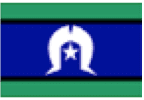At SSRV, we see how natural disasters can lead to and impact social security legal issues. Below are some client examples of how disasters impacted their social security issue and how SSRV was able to assist.
Finding Mutual Obligations hard after being affected by a disaster?
Jen* had been affected by the floods and Lena* had been affected by bushfires. They were both struggling to keep up with their Mutual Obligation (MO) requirements as they dealt with insurance and repair issues. SSRV helped them understand their rights to pause their MO requirements and how they could request this. This helped to alleviate the stress they were experiencing in the aftermath of the disaster.
Disasters can contribute to Centrelink debts being incurred; they can also be a ‘special circumstance’ to seek waiver of a debt
Over recent years, Sandy’s* small rural diary farm had been severely affected by drought, flooding and bushfires and as a result was no longer making a profit. Grappling with the financial status of the farm, Sandy applied for Farm Household Allowance (FHA) from Centrelink. Shortly after his payments started, he visited ill family in the UK and was locked out of Australia due to COVID-19 border closures. A year later Centrelink told him he owed $24,000 for overpayment of FHA. SSRV represented Sandy at the Tribunal and obtained a waiver of his entire $24,000 debt.
Disagree with Centrelink’s valuation of your disaster affected property?
Grant*lived on a property in a flood affected area. He was receiving JobSeeker Payment when Centrelink decided to undertake an assets review. The Centrelink valuation of his property, which was a modest house surrounded by extensive land, resulted in his JobSeeker Payment being cancelled for exceeding the assets limit. This left Grant with no income and unable to easily liquidate his assets due to the nature of the property. We provided Grant with extensive advice about his legal position, his appeal rights and how to ask Centrelink for an Authorised Review Officer (ARO) Review. We encouraged Grant to contact us again for further advice once he receives his ARO decision.
It’s clear that the aftermath of natural disasters can result in complex and traumatic circumstances for already vulnerable people.
Here is some guidance for community lawyers and community workers supporting vulnerable clients at risk of being affected by disasters.
1: Identification documents are generally required to apply for new Centrelink payments. Where a person loses their identity documents due to a disaster, an Alternative Identity Form can be used to temporarily establish identity for the purpose of receiving payments.
2: Centrelink recipients must update Centrelink within 14 days of any change in circumstances that might affect their payment. This includes relocation and changes in care of children. Updating Centrelink about changes in circumstances decreases the risk of overpayments and future debts.
3: Centrelink will sometimes send important notices and correspondence via post, particularly where legislation requires. Centrelink recipients should update their postal address with Centrelink if necessary. Many post offices allow post to be sent to their care.
4: Centrelink recipients who relocate from their principal home due to a disaster, can seek to have their home be exempted from the assets test under ‘temporary vacation of property’ provisions for up to 24 months. These exemptions are not automatic and usually need to be requested. There are also provisions which allow insurance payouts to be exempted from the assets test.
5: Suspension of Mutual Obligation requirements and debt repayments can be requested by contacting Centrelink and explaining the impact of the disaster on the client’s circumstances.
6: Experiencing a disaster may be considered a ‘special circumstance’ for the purpose of a Compensation Preclusion Period reduction or waiver of a debt. We are available to speak with you about how this may apply to specific circumstances.
7: Most Centrelink decisions can be appealed – first internally by a Centrelink Authorised Review Officer, and subsequently through two tiers of the Administrative Appeals Tribunal.
SSRV services
Please call us to discuss how SSRV can help with your Centrelink issue, or your client’s Centrelink issue.
| SSRV Worker Help Line | Monday to Friday, 9am – 5pm | 03 9481 0655 |
| SSRV Legal Assistance Line | Monday to Thursday, 10am – 1pm, 2pm – 4pm | 03 9481 0355 |
| Rural Callers | 1800 094 164 |
*Names have been changed.




